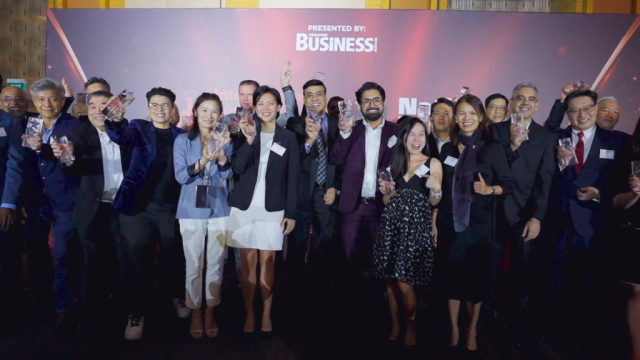Singapore
Asia Pacific Breweries files legal arbitration over failed divestment
APB said it lost $$8.5 million in the terminated sale and is battling its joint venture partner for supposed contract breaches.
Asia Pacific Breweries files legal arbitration over failed divestment
APB said it lost $$8.5 million in the terminated sale and is battling its joint venture partner for supposed contract breaches.
Asia gearing up for further re-leveraging
The reversal of region-wide deleveraging will accelerate even more with cost of debt now at a record low.
Risk consolidation escalates as growth bottoms out
Asian economies, including Singapore, will recover after hitting their lowest growth rates in Q1 and spur risk appetite.
Higher electric demand lifts Sembcorp Industries
Its first quarter results will see robust revenues from its utilities business, says Phillip Securities.
Frasers China privatization deal pushes through
There are two reasons why Fraser & Neave and another shareholder are buying out the subsidiary shares.
Electricity tariff to rise by 4.3% in the next three months
Not a good weekend ahead as consumers could expect $4.18 increase to electricity bill beginning this Sunday, April 1.
URA names new chairman
Goodbye Alan Chan, hello Peter Ho Hak Ean.
MAS unveils second series of native orchid collectible coins
It features this time two native orchids – Arundina graminifolia and Bulbophyllum macranthum.
More 'green' cars please
The people of Singapore have many reasons to feel good today. A robust economy, the world’s busiest port, a superior airline, world class dining, more millionaires per capita than any other country – the list goes on.
AIM High: An alternative means of raising capital to Singapore’s secondary listing market
Despite the gloomy economic outlook in Europe, South East Asian (SEA) companies can still successfully come to the London Stock Exchange AIM market and raise capital in doing so. Benefitting from buoyant consumer markets and growth in the region, SEA companies are using the London-based alternative market to capitalise on their success.
How to win the talent war in Singapore
Singapore is in a war for talent. With unemployment continuing to hover around a very low two percent, there is an urgent need for companies to differentiate their employer brand and employee value proposition (EVP) in one of the world’s most competitive talent marketplaces.
Singapore 2 - Las Vegas 1
The integrated resorts (casinos with added on leisure to you and me) in Singapore celebrate two years this month.
10 tips on how to destroy employee morale
I have (mostly) had the fortune of working for some very good managers/leaders throughout my career, including some excellent Singaporean managers. And I myself have had to lead employees and teams in Singapore, rest of Asia, Europe and the US.
Tunnel vision hinders growth in Singapore
Skills shortages remain an ongoing challenge for many employers in Singapore, yet there is one underutilised strategy that employers could consider to help overcome this skills gap, and that is candidates with transferable skills. Too often we see Singaporeans being trapped in career silos because they don’t believe they can cross industry boundaries. At the same time, the situation is compounded by employers that do not consider the transferable skills of candidates who could support their growth plans. This is despite the ongoing skills shortages, which remain a factor in Singapore. Those employers that take steps to overcome this skills gap by becoming more flexible in their requirements when it comes to a candidate’s industry background and transferable skills are successfully securing top talent. For example, a HR professional with experience in the FMCG industry has the technical skills necessary to perform their role in the financial services industry. That’s why we advise employers to give credence to transferable skills. By over-emphasising the value of previous same-industry experience, employers could be missing out on talented people and motivated workers. It is particularly concerning in industries where there is a shortage of skilled professionals and employers may need to consider candidates who have the necessary competencies but may not at first glance be the perfect match. This also extends to considering candidates with transferable skills and then using training to overcome any skill gaps. For instance, an employer seeking a payroll candidate could consider accounts payable or data entry clerks who can be moulded into a payroll role. An employer that needs a Personal Assistant could consider strong administrators or team assistants as their transferrable skills will meet most of their requirements. When considering what skills are transferable, we advise employers to look at what is really essential and what is desirable in a potential candidate. Consider candidates with the right cultural fit, who have the desired behaviours and transferable skills, not just the specific background initially required. By considering transferable skills, you open a vacancy to a larger pool of candidates who have solid experience, suit the company, and can become a highly valued asset with a little technical training. Hays, the world’s leading recruiting experts in qualified, professional and skilled people.
How to get your people working together
One of the most common issues I see when working with underperforming Singaporean companies is a failure of management to get the separate divisions, functions and individuals to work together effectively.
Citigroup increases global participation for Singapore Mercantile Exchange
Citi's reach to push the Exchange's trading growth potential in the Asian marketplace.
Keeping brand promise; paramount to consistent customer experience
Here is a three word history of customer service: Response to Resolution to Experience. An industry called Customer Interaction Management (CIM) was born when organizations felt the importance of providing a ‘Response’ to make their customers feel special and wanted.



















 Advertise
Advertise





















Commentary
Singapore Companies Eye Vietnam to Navigate Manufacturing Shifts, Green Transition, and the AI Revolution
AI is revolutionising learning: Why should educational institutions in Singapore embrace this change?
Seeking an office space in Singapore: Where do you start?